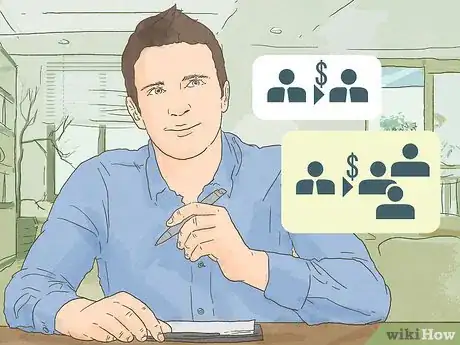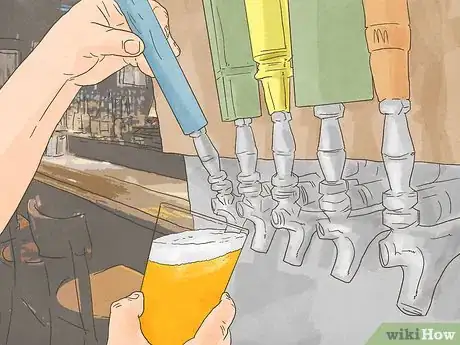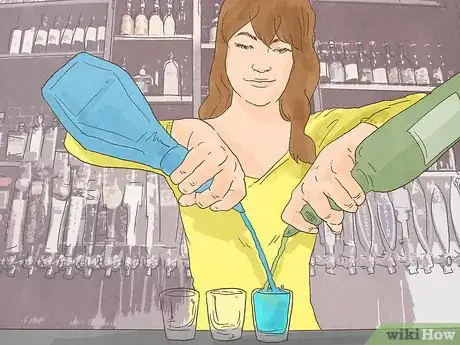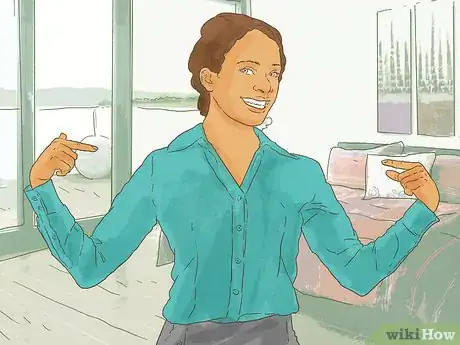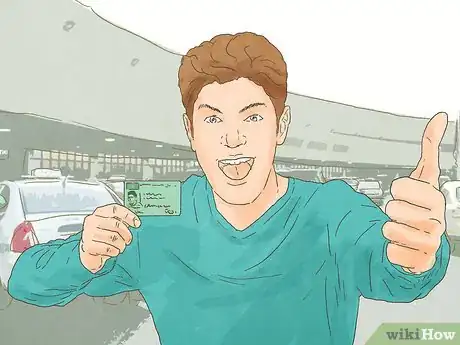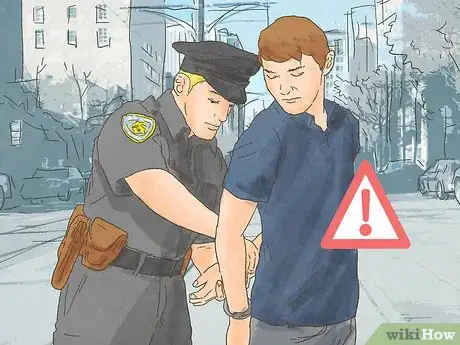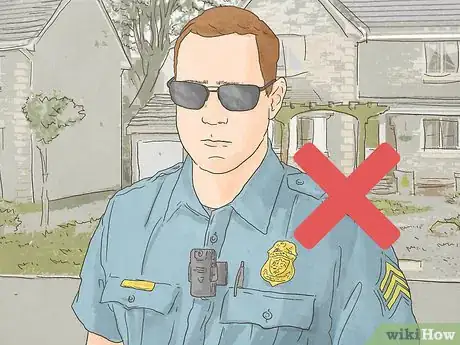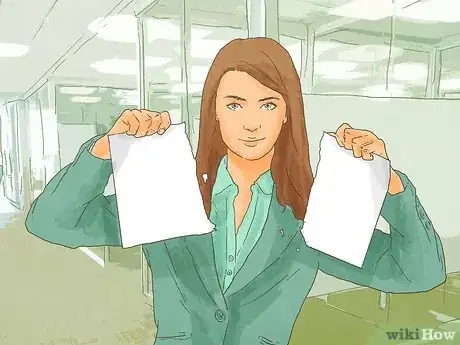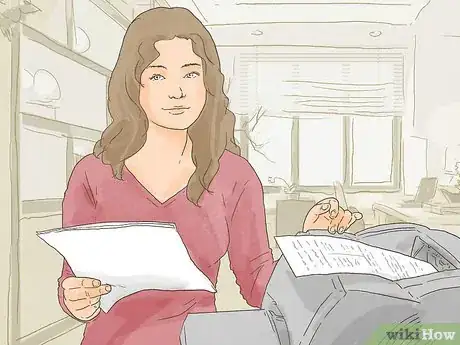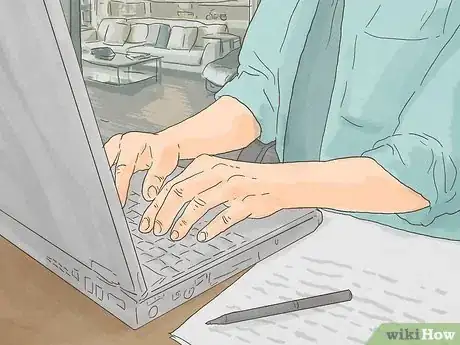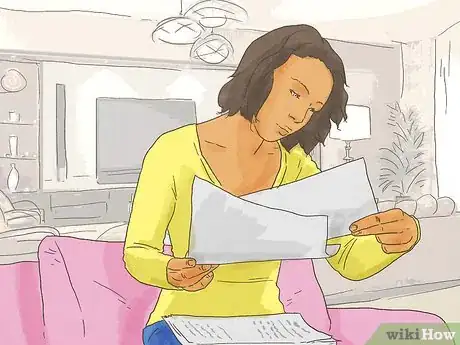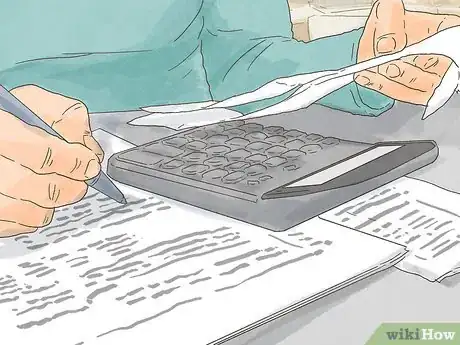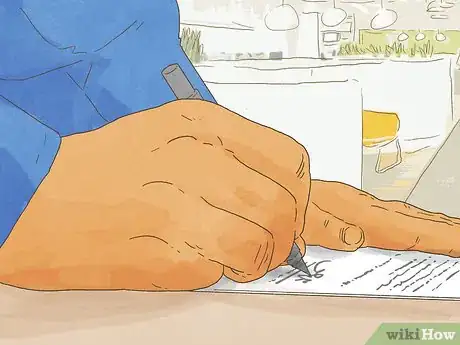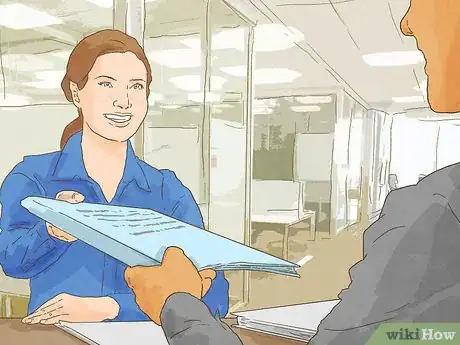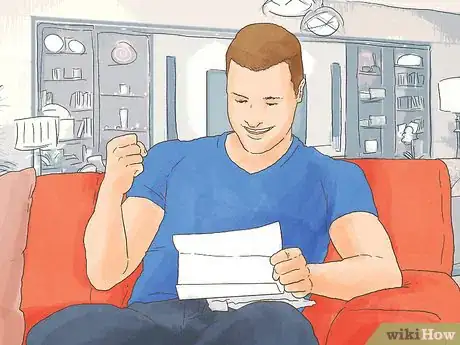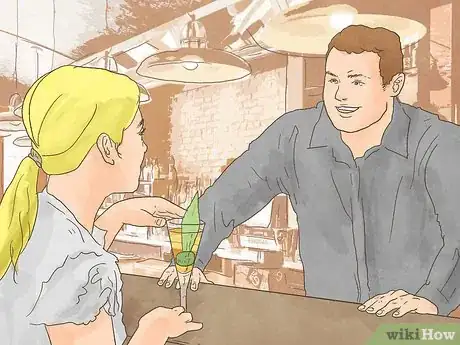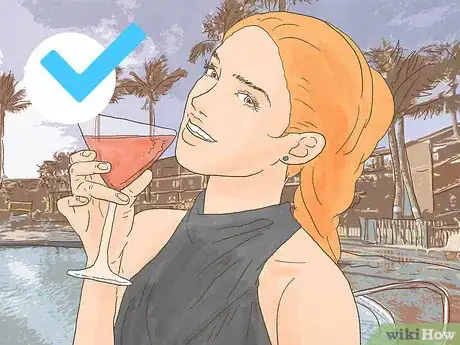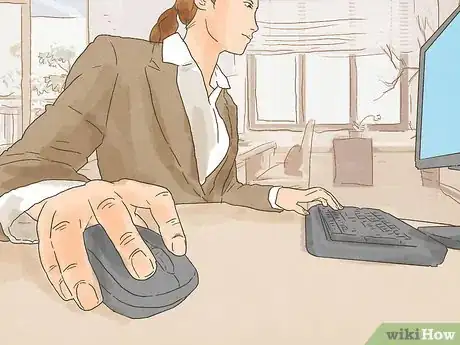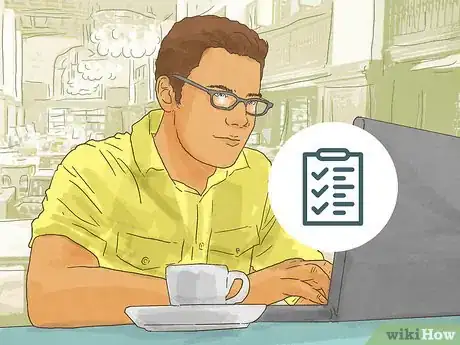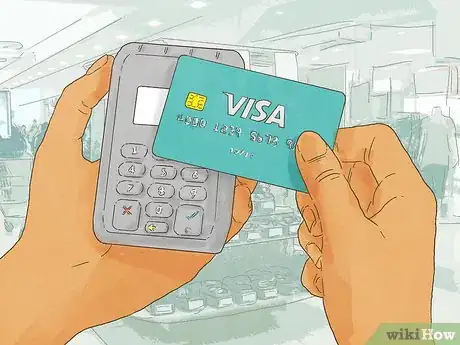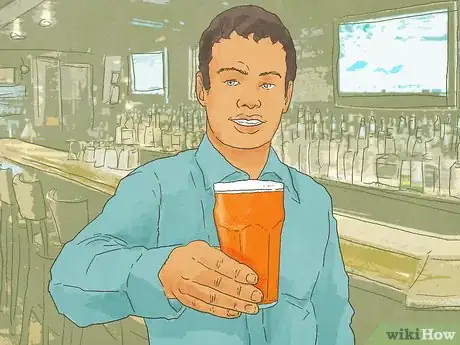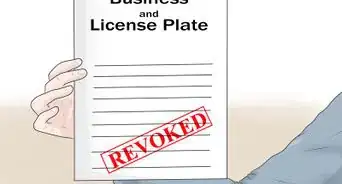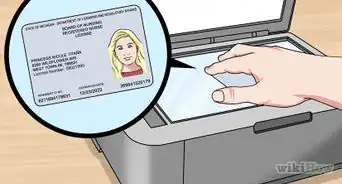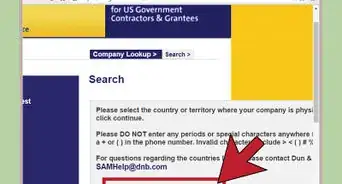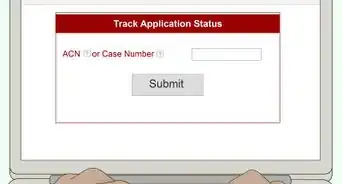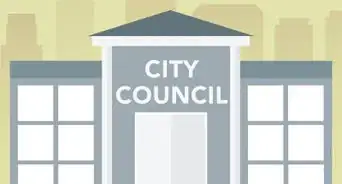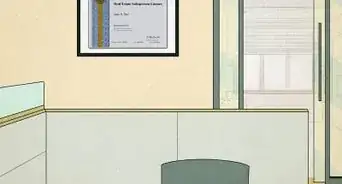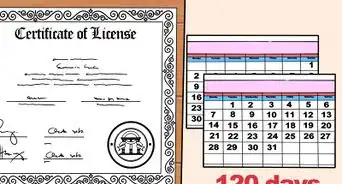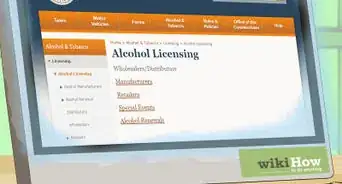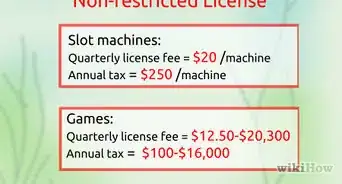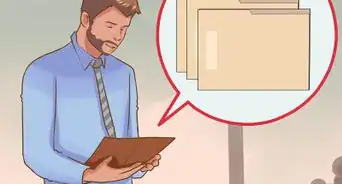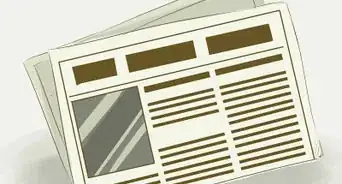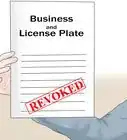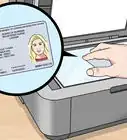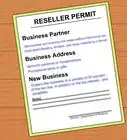This article was co-authored by wikiHow Staff. Our trained team of editors and researchers validate articles for accuracy and comprehensiveness. wikiHow's Content Management Team carefully monitors the work from our editorial staff to ensure that each article is backed by trusted research and meets our high quality standards.
wikiHow marks an article as reader-approved once it receives enough positive feedback. In this case, 88% of readers who voted found the article helpful, earning it our reader-approved status.
This article has been viewed 89,962 times.
Learn more...
Obtaining a liquor license is required if you wish to sell or provide wine, beer or liquor. The application process has been simplified, but you still must comply with many notice requirements and a lengthy application form. Working with an attorney who is familiar with the process may be helpful. This article will use the phrase “liquor license” to apply generally to licenses for liquor, wine or beer. Many of the application procedures and requirements are the same. You just need to specify which one or more you wish to sell.
Steps
Selecting Your License Type
-
1Decide whether you need a wholesale or a retail license. The first decision you need to make is the overall type of license that you require. There are two basic categories for liquor licenses in New York. These categories break down as follows:[1]
- Wholesale. A wholesale license gives you the power to manufacture, warehouse and distribute alcohol. You can then sell to retailers, who in turn sell to individual consumers.
- Retail. A retail license authorizes you to purchase alcohol from wholesale suppliers and then to re-sell it to consumers. Retail licensees will include liquor stores, restaurants or other establishments that have direct contact with the consumer.
-
2Select a license class for beer sales. The New York Liquor Authority recognizes and awards ten different classes of license for the sale of beer. You need to consider the type of establishment you wish to operate and apply for the appropriate license class.
- Drug store beer or grocery store beer. This license allows sale of beer in a drug store or grocery store for off-premises consumption.
- Drug store or grocery store beer/wine product. This license allows the sale of beer or wine “products,” which include added ingredients or juices, such as wine coolers.
- Eating place beer. The sale of beer is incidental to the sale and consumption of food.
- Hotel beer. The operator of a hotel may apply for a license to sell beer to patrons, either in a bar, room service, or for take-out.
- Club beer. The operator of a club may sell beer to its members. For the purpose of this license, a “club” is not a nightclub but is rather an organization of members for a common purpose, such as an Elks Club or VFW.
- Ball park beer. For on-premises sale and consumption of beer at baseball fields, racetracks or other similar athletic venues.
- Microbrewery. License to produce or brew up to 60,000 barrels of beer. May include sale to licensees. Does not include retail sale to consumers.
- Restaurant brewer. Allows on-site brewing and sale of beer at an operating pub or restaurant.
- Supplemental restaurant brewer. Allows a restaurant brewer to sell for off-premises consumption or events.
Advertisement -
3Select a license class for wine sales. The New York Liquor Authority identifies five separate classes of licenses for the sale of wine, in addition to the drug store or grocery store licenses mentioned above. Some of the wine licenses may be awarded in conjunction with beer licenses noted above.
- Restaurant wine. The operator of a restaurant may sell wine and beer to customers.
- Hotel wine. Allows on-premises sale of wine in a hotel bar, lounge or room service.
- Club wine. Allows on premises sale of wine or beer for club members.
- Tavern wine. Allows sale for on-premises consumption of wine or beer at a tavern.
- Wine store. License to sell wine only (not beer or liquor) for off-premises consumption.
-
4Select a license class for liquor sales. Five different licenses allow for the sale of liquor, as opposed to wine or beer. The selection of the license class will depend on the type of establishment that you wish to operate.
- Liquor store. This license is for the sale of liquor and wine (not beer) for off-premises consumption.
- Hotel liquor. Allows on-premises consumption of liquor in a hotel bar, lounge or room service.
- Club liquor. Allows for on premises consumption of liquor for club members.
- On-premises liquor. This license allows on-premises consumption of liquor, wine or beer, as at a traditional bar. Food must be available for sale.
- Cabaret liquor. Allows on-premises consumption of liquor, wine or beer at an establishment that provides primarily musical entertainment. Must have a capacity of at least 600 people.
Verifying Your Eligibility
-
1Be at least 21 years old. Before considering the merits of your application or any other justifications for your license, the New York Liquor Authority needs to make sure that you satisfy some minimum requirements. The first of these is that you must be at least 21 years old.
- If you are applying for a license on behalf of a partnership, each member of the partnership must be at least 21 years old.
-
2Satisfy citizenship requirements. Any applicant for a liquor license in New York must be a citizen of the United States, a permanent resident alien, or a citizen of a country that allows its citizens to travel to the U.S. and conduct trade.
- The NYLA does not require applicants to be citizens or even residents of the state of New York in order to obtain a liquor license.
-
3Have a clean criminal record. To obtain a liquor license, you cannot have been convicted of a felony, either in New York or any other state in the U.S. If you were convicted in some other state of a crime that is classified as a misdemeanor, but which would be classified as a felony in New York, you are ineligible for a liquor license.
- If you were convicted of a felony but subsequently obtained a pardon, Certificate of Relief from Civil Disabilities, or Certificate of Good Conduct, you may apply for and obtain a liquor license.
-
4Do not work as a police officer. This is the one profession that would disqualify an applicant from obtaining a liquor license in New York. Many people, in many other professions, will seek a liquor license as a second source of income, but police officers are prohibited from doing so. This is most likely to avoid even the appearance of any impropriety that could arise.
-
5Wait two years if a previous license was revoked. You are ineligible for a liquor license if you previously held a license to sell alcohol and had it revoked for any reason. This limitation only applies for two year. After two years, you may reapply if you wish.
Applying for a License
-
1Consult with an attorney. Applying for a liquor license is a lengthy, complicated process with several legal requirements. If you miss any steps or omit any information, your application is likely to be delayed. It is a good idea to find an attorney with experience assisting people with liquor license applications.
- You can ask other liquor store or establishment owners who they worked with when they applied.
- You may also contact the bar association in your area to find a list of attorneys who specialize in license applications.
-
2Find the appropriate application form. At the NYLA website, www.sla.ny.gov, you will see a long list of options along the left side of the screen. Toward the bottom of that list, find the link to Forms Quick-Find. This will redirect you to a new screen with a long list of links to application forms. Review the list and find the license for which you wish to apply. The form that opens is formatted to be completed on the screen. You may then save and print the completed form. The NYLA will not accept handwritten applications.[2]
-
3Download and study the application instructions. Most of the application forms are accompanied online by a separate file with application instructions. While these instructions are similar for many different license types, you should find the one directly connected to your license and be sure to follow the instructions carefully. Failure to do so could result in denial or delay of your application.[3]
-
4Answer all the questions on the application form. Each application has a lengthy series of questions that you must answer. These questions cover a wide range of topics related to your background, the property you intend to use, the type of operation you intend, your expected employees, and your finances for operating your business. You should review the application form carefully before beginning, and take your time to collect all the information that you will need to complete it.
-
5Prepare all required documentation. Each type of license has its own requirements for documentation. Be careful to read the application form and instructions to identify what you will need. If you fail to provide all the information, your application will be delayed or denied. As an example, if you are applying for a license for a liquor and wine store, you will need to provide the following documentation:
- a copy of the lease or deed for the site of your store
- a thorough financial disclosure
- copies of loan agreements that you have with anyone related to the license
- any other records or documents that explain your financing for the liquor store
- certain documentation related to employees whom you plan to hire
- a separate personal questionnaire about yourself
- your fingerprints, taken by a licensed provider
- copies of all contracts for the purchase of inventory
- photographs and diagrams of the location
- proof of citizenship.
-
6Calculate your license fee. When you apply for a liquor license of any kind, you must pay the full license fee. The application form has a space for you to show the calculations of your license fee amount. The NYLA posts a schedule of license fees on its website. Visit the homepage at www.sla.ny.gov and select "Forms - Quick Find" from the list on the left side of the screen. The first item in the list of forms that opens is the Retail Fee Chart. The Wholesale Fee Chart is about halfway down the list of forms. Open the chart, find the type of license you want, and transfer the appropriate values to your application. Notice that there are different license fees for different counties in New York.[4]
- For example, if you want to apply for a retail Hotel Liquor license in Rochester, NY, you will look on the Retail Fee Chart. The Hotel Liquor license is about halfway down the first page. The cost for a license in Rochester is $3,072 per year, and you have a $200 filing fee. The total cost, therefore, for a two-year license, is $6,344 ($3072x2 + 200).
-
7Provide a statement of compliance with the 200/500 foot rules. In short, liquor licenses will not be granted if your anticipated location will be within 200 feet of a church, school, synagogue or other place of worship. You also may not obtain a license for an on-premises license if you are within 500 feet of another establishment with a similar license. There are some exceptions and technical interpretations for each of these rules, which you will need to review in more detail when you apply.
- For example, the 200 foot rule only applies to permanent structures that are used exclusively as a place of worship.
- There are also certain “grandfather clauses” for establishments that have previously existed prior to the rule.
- The 500 foot rule also allows some exceptions depending on the type of establishment involved.
-
8Sign the Applicant’s Statement to complete your application. The Applicant’s Statement is a page-long statement that verifies that all the information in your application is true and accurate. You also certify that you will notify the NYLA of any changes in information contained in the application and that you will continue to abide by the laws of the State of New York.
-
9Submit your completed application package. The full application, with all documentation, notice of publication, and everything else that you wish to submit, should be sent by mail to New York State Liquor Authority, Church Street Station, P.O. Box 3817, New York, NY 10008-3817. You need to submit one complete copy. Save one copy of the full application package for your own records.
-
10Wait for your decision. Assuming the NYSLA receives all the required information and documentation, all materials are complete and accurate, and there is no other reason to reject your application, the NYSLA should issue your license after six to twelve months. If your application is incomplete or missing information, expect an additional delay.
Providing Notice to the Public
-
1Provide the appropriate statement. Before you apply for a license, you must give notice to the general public that you are doing so. The application form that you use will provide the precise language that you are to use. For example, if you are applying for an on-premises retail license, you will use the following notice:
- ”Notice is hereby given that a license, number (fill in serial number, if not known write "Pending" in this space) for (fill in beer, liquor and/or wine, as the case may be) has been applied for by the undersigned* to sell (fill in beer, liquor and/or wine, as the case may be) at retail in a (hotel, club, restaurant, vessel, railcar, or other type of establishment, as the case may be) under the Alcoholic Beverage Control Law at (fill in street address, city, town or village and county in which the premises are located) for on premises consumption.”
-
2Select an appropriate newspaper. Before you submit your application for a liquor license, you must publish a notice of application in a newspaper for the area where your property is to be located. The newspaper you select must be one that is generally circulated throughout the county.
- If the premises to be covered by the liquor license is in New York, Kings, Queens or Bronx county, then you must publish your notice in one weekly AND one daily newspaper published in that county.
- If the premises is anywhere else in the state of New York, then you must publish your notice in either a weekly or a daily newspaper.
-
3Publish your notice for the prescribed time period. Your notice must be published once a week for two consecutive weeks. The first publication must be made within ten days of filing your application with the NYLA. You must obtain two originals of the published notice, and send one to the NYLA within 15 days thereafter. You should keep the second copy of the notice for your own records.
Obtaining a Temporary Special Permit
-
1Determine your need for a temporary permit. If you are hosting a special event and wish to sell liquor, wine or beer, you may apply for a special temporary permit to do so. The NYLA provides five different temporary permits for special events. Each one has its own particular requirements.
- Temporary beer and wine permit. This permit allows the sale of wine and beer for a single 24-hour period for consumption at a particular event.
- Caterers permit. A caterer who provides food for an event may obtain a 24-hour license to furnish wine, liquor or beer.
- Caterer’s permit for club use. Similar to a caterer’s permit, but specifically to cater an event at an established club.
- All night permit. Someone who already holds another liquor license may apply for a special permit to host an overnight event and provide alcohol. This permit is available for New Year’s Eve only.
- Charitable permits. A charitable, religious, civic or educational organization may obtain a permit to sell alcoholic beverages in sealed containers, not for consumption at the event.
-
2Review the full Terms and Conditions for the special permit you desire. Each special permit has particular limitations with regard to time, amount and type of alcohol permitted, and location of the event.
-
3Apply online. Visit the NYLA website for online permit applications. If this is your first visit, you will need to create an NY.gov ID to continue with the application process. This is a simple process of providing your name and selecting a user id and password.
-
4Select your license type. After you sign in to the application site using your NY.gov ID, you will first be prompted to select the type of license you wish to obtain. From the list provided, find the license that meets your needs and click on the adjoining box. Then select “Continue Application” at the bottom of the page.[5]
-
5Answer the initial application questions. After selecting your license, you will be prompted to answer a series of questions. These questions are designed to establish your eligibility for the license. You must answer each question completely and honestly. Any incomplete or intentionally incorrect or misleading information could delay your application or lead to possible prosecution.[6]
-
6Pay the required application fee. Each temporary permit has its own application fee. You may pay it as part of your online application using a credit card. The fees for the five different temporary permits are as follows:
- Beer, Wine and Cider permit, $36 per day per point of sale. For example, if you are operating a two-day fair and will have two alcohol stations, then your fee will be $144 ($36x2x2=$144).
- Caterer’s Permit, $48 per point of sale, per day.
- Club Caterer’s Permit, $48 per point of sale, per day.
- Charitable Permit, $20.
- All Night Permit, $61 per point of sale.
-
7Review your application information and complete the submission. As a final step, you will be prompted to review all the information that you have entered. Make sure that everything is complete and accurate. If you omit any information in your application, the process is likely to be delayed.[7]
Community Q&A
-
QuestionHow long is the process for on premises beer license?
 Community AnswerThe whole process takes six to 12 months.
Community AnswerThe whole process takes six to 12 months. -
QuestionCan you sell beer and liquor from a redemption center?
 Community AnswerThere is nothing in the license regulations that directly prohibits selling beer and liquor from a redemption center. You would have to qualify under all the other regulations.
Community AnswerThere is nothing in the license regulations that directly prohibits selling beer and liquor from a redemption center. You would have to qualify under all the other regulations. -
QuestionWhat is a "conditional letter of approval"?
 Community AnswerThis means that your license is approved as long as you comply with the requested conditions.
Community AnswerThis means that your license is approved as long as you comply with the requested conditions.
References
- ↑ https://sla.ny.gov/get-license
- ↑ http://www.sla.ny.gov/forms-quick-find
- ↑ http://www.sla.ny.gov/forms-quick-find
- ↑ http://www.sla.ny.gov/forms-quick-find
- ↑ https://aca.licensecenter.ny.gov/ACA/Default.aspx
- ↑ https://aca.licensecenter.ny.gov/ACA/Default.aspx
- ↑ https://aca.licensecenter.ny.gov/aca/default.aspx
